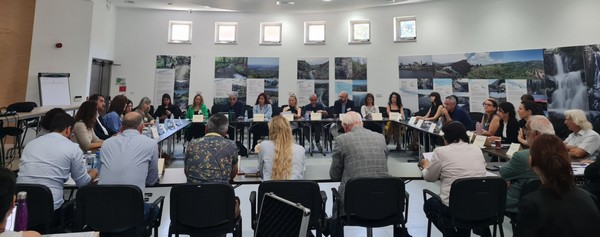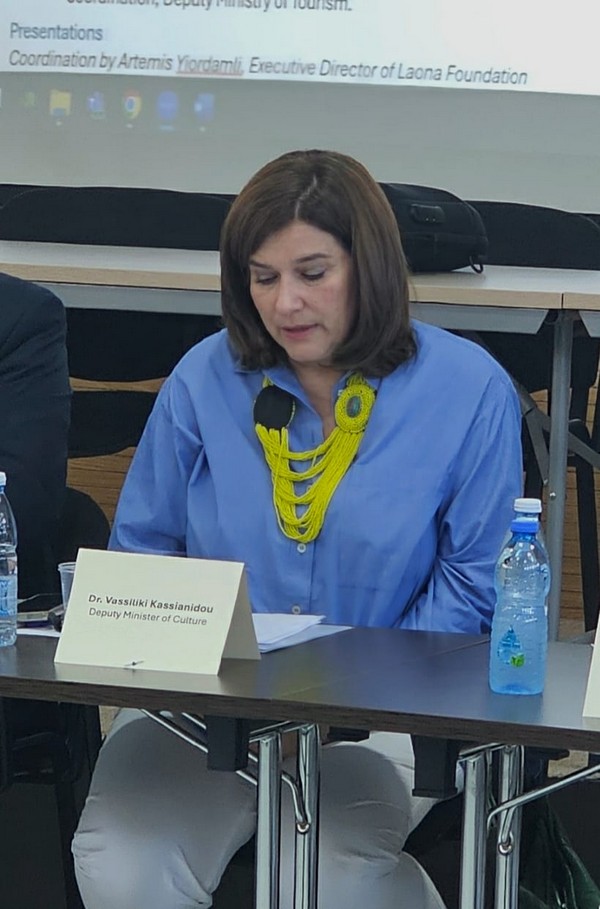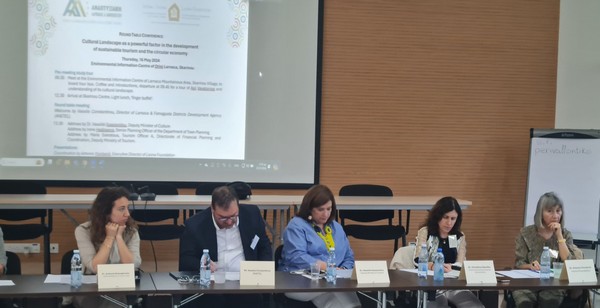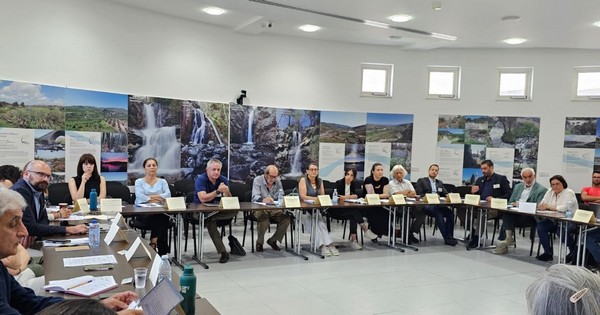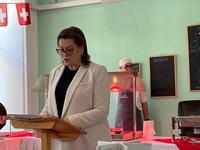Press Releases
16-05-2024 15:44
Address by the Deputy Minister of Culture, Dr Vasiliki Kassianidou, at the Round table conference titled “Cultural Landscape as a powerful factor in the circular economy”, in Skarinou
It is with great pleasure that I am here today with you to address the round table discussion on the “Cultural landscape as a powerful factor in the circular economy”, organized by Laona Foundation and Larnaka and Famagusta Districts Development Agency.
The Deputy Ministry of Culture will always support any initiative that showcases our culture and contributes to the advancement of cultural tourism, creating a new and promising space for cultural, social, and economic development for Cyprus that is sustainable in the long term.
Therefore, we acknowledge the importance of your overall project which focuses on ‘circular cultural tourism’; This approach of tourism defines a sustainable and regenerative cultural tourism model that aims to foster sustainable and equitable regional development implementing a human-centred circular economy model grounded on recognizing the significance of cultural landscape. This can be achieved through various ways, such as for example through the enhancement of abandoned, underused and lesser-known cultural and natural heritage, the enhancement of human capital, the reduction of waste and natural resources consumption, the recycling and reuse of materials and products, and the enhancement of locally based food and craft productions.
Furthermore, this human-centred model can be achieved by empowering local communities, enhancing ecosystems, local identity, health and cultural diversity and stimulating local entrepreneurial innovation.
As a Ministry we support every effort that highlights the cultural product of our country, enhances the international image of Cypriot culture, and contributes to the realization of our strategic plans. One of our primary goals is to protect and promote our cultural heritage; tangible and intangible.
We share the same concern, which is not only to preserve the landscape in which the cultural monuments themselves are located, but also preserve the collective memory that comes from the stories conveyed by the locals. The importance of cultural landscapes lies in their ability to tell the story of human development and progress over time. They serve as tangible links to our past, offering insights into the ways people have utilized and transformed their surroundings to meet their needs. Preserving these landscapes is crucial for maintaining cultural heritage, fostering a sense of local identity and continuity, promoting and highlighting sustainable practices from the past. Conservation efforts involve the protection and restoration of the physical features, structures, and spatial relationships that define these landscapes, ensuring they remain intact for future generations. This process often includes engaging local communities, historians and environmentalists, to develop management plans like this one presented today. Through the study and conservation of cultural landscapes, we can have a better understanding and appreciation of the diverse cultural narratives that have shaped the history of our island.
We couldn’t agree more with your suggestion that digital tools are an important resource for conservation, monitoring and valorisation of the cultural landscape. The digital documentation of cultural heritage can prevent the risk of loss of tangible and intangible cultural heritage and traditional knowledge held only by older generations.
In addition, cultural tourism can be an opportunity to learn about common european culture and history, while strengthening european identity, and acknowledging common roots within local identities and specificities, and recognizing unique symbolic, historic, cultural, social, spiritual values, as expressed in exceptional places, landscapes, languages, traditions and arts. Hence, cultural tourism can be a powerful driver to intensify cultural exchanges between european communities and enhance cultural diversity, social cohesion, identity, mutual respect, knowledge and trust.
I would like to congratulate all those who have participated in the actions taken by Laona Foundation and Larnaka and Famagusta Districts Development Agency, about which we are going to receive more information about later on, today. I note some of them, such as the contacts with stakeholders, the outlining of 10 particular communities in the framework of Hakathon competition for the promotion of the best implemented ideas, the 1st Renaissance Fair and Needles Festival.
Towards this aim, the Deputy Ministry of Culture supports any effort to study and promote our cultural heritage, as it can, on the one hand, strengthen our shared identity and, on the other, offer invaluable prospects for economic growth and for tourism, and play an important role in the development of a sustainable future for our country. If properly utilised, culture can act as a tool for revitalising both urban centres and also our rural and mountain areas.
On the whole, I would like to congratulate all those who participate in the Be.Cultour project and wish you every success in your future activities. I am sure that the outcome of today’s exchange of views during the round table discussion will be very interesting and fruitful.
(EK)
Relevant Press Releases

22-11-2024 11:25
The “Royal Chapel” of Agia Aikaterini at Pyrga closed for the public
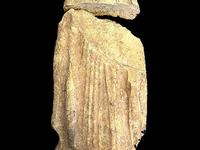


04-11-2024 13:18
Announcement by the Cyprus Academy of Sciences, Letters, and Arts
